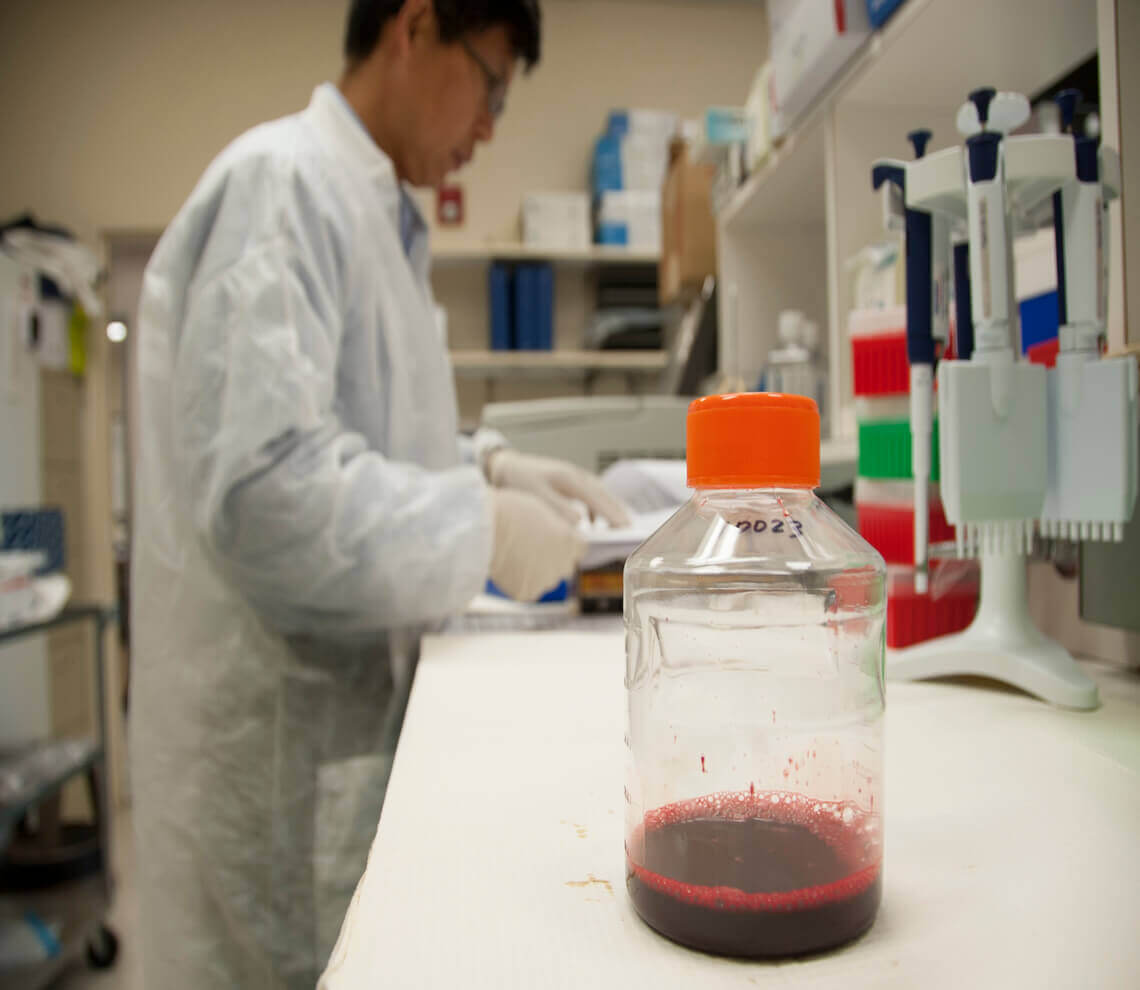- Our Suppliers
- MBS Monoclonals
- Mouse Anti-Human CD43-APC
Product short description
Price:
359 EUR
Size:
100 Tests
Catalog no.:
GEN674255
Product detailed description
Gene name
N/A
Gene name synonims
N/A
Other gene names
N/A
Concentration
N/A
Purification method
N/A
Other names
N/A
Also known as
CD43
Clone
DF-T1
Clonality
Monoclonal
Immunoglobulin isotype
Mouse IgG1
Latin name
Mus musculus
Host organism
Mouse (Mus musculus)
Subcategory
Mnoclonal antibodies
Category
Secondary Antibodies
Form/Appearance
Allophycocyanin (APC) Conjugate
Tested applications:
Flow Cytometry; Immunohistochemistry (Frozen Sections)
Description
This antibody needs to be stored at + 4°C in a fridge short term in a concentrated dilution. Freeze thaw will destroy a percentage in every cycle and should be avoided.
Species reactivity
Human (Homo sapiens); Due to limited knowledge and inability for testing each and every species, the reactivity of the antibody may extend to other species which are not listed hereby.
Properties
Human proteins, cDNA and human recombinants are used in human reactive ELISA kits and to produce anti-human mono and polyclonal antibodies. Modern humans (Homo sapiens, primarily ssp. Homo sapiens sapiens). Depending on the epitopes used human ELISA kits can be cross reactive to many other species. Mainly analyzed are human serum, plasma, urine, saliva, human cell culture supernatants and biological samples.
Test
MBS Monoclonals supplies antibodies that are for research of human proteins.Mouse or mice from the Mus musculus species are used for production of mouse monoclonal antibodies or mabs and as research model for humans in your lab. Mouse are mature after 40 days for females and 55 days for males. The female mice are pregnant only 20 days and can give birth to 10 litters of 6-8 mice a year. Transgenic, knock-out, congenic and inbread strains are known for C57BL/6, A/J, BALB/c, SCID while the CD-1 is outbred as strain.
Specificity and cross-reactivity
Human CD43 CD43, a member of the sialomucin family of cell surface receptors, is a 95-135 kDa type I transmembrane glycoprotein whose variability in molecular weight is dependent upon the nature of the extracellular O-glycans. It is the major sialoglycoprotein on thymocytes, T cells and neutrophils. It is also present on activated B cells, plasma cells, NK cells, granulocytes, monocytes, macrophages, platelets and bone marrow hematopoietic stem cells. CD43, which binds to ICAM-1 (CD54), appears to function as an anti-adhesion molecule, inhibiting T cell interactions, including T cell killing, and by increasing the threshold for T cell activation.1-4; Since it is not possible to test each and every species our knowledge on the corss reactivity of the antibodies is limited. This particular antibody might cross react with speacies outside of the listed ones.
Storage and shipping
The purified antibody (UNLB) is supplied as 0.1 mg purified immunoglobulin in 1.0 mL of 100 mM borate buffered saline, pH 8.0. No preservatives or amine-containing buffer salts added. Store at 2- 8 degree C. The fluorescein (FITC) conjugate is supplied as 100 tests in 1.0 mL of PBS/NaN3 and a stabilizing agent. Store the antibody ats should be kept in the range of 1-7 degrees Celsius.. The biotin (BIOT) conjugate is supplied as 100 tests in 1.0 mL of PBS/NaN3 and a stabilizing agent. Store the antibody ats should be kept in the range of 1-7 degrees Celsius.. The R-phycoerythrin (R-PE) and allophycocyanin (APC) conjugates are supplied as 100 tests in 1.0 mL of PBS/NaN3 and a stabilizing agent. Store the antibody ats should be kept in the range of 1-7 degrees Celsius.. Do not freeze! The Spectral Red (SPRD) conjugate is supplied as 100 tests in 1.0 mL of PBS/NaN3 and a stabilizing agent. Store the antibody ats should be kept in the range of 1-7 degrees Celsius.. Do not freeze! Protect conjugated forms from light. Reagents are stable for the period shown on the label if stored as directed.
© Copyright 2016-Tech News . Design by: uiCookies

